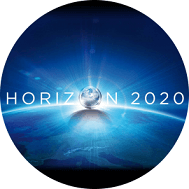Stay in the loop! Subscribe to our mailing list

On 11 January 2018 the “Horizon 2020 interim evaluation: maximising the impact of EU research and innovation” has been released by the European Commission. The report assesses the progress of the Horizon 2020 programme (H2020) in its first three years of implementation and explores ways to maximise its potential in the remaining programme period, based on the recommendations of the High Level Group chaired by Pascal Lamy (and set up for this very purpose in September 2016).
In a nutshell, the key findings show that the programme has proven to have an undeniable EU added value, contributing to the image of the EU as an attractive place for research and innovation. Compared to the previous programme (FP7), more than half of the H2020 participants are, in fact, newcomers (also thanks to the simplification measures that have been put into place, according to the report). Moreover, H2020 has shown a high level of flexibility towards challenges such as migration and has contributed significantly to the achievement of EU policy objectives, through its focus on science, industrial leadership and societal challenges.
The evaluation is therefore overall positive, although there is indeed room for improvement for the programme to have an even bigger impact. Currently, many ambitious and high-quality projects cannot see the light of day purely out of financial restrictions (i.e. limited funding available), resulting in a waste of opportunity for Europe and of resources for the applicants. The funding should hence be doubled, argues the Lamy group, which also defines this commitment as “the best investment the EU can make in order to align with its main competitors”. It is further emphasised that H2020 should also be better communicated to the citizens, so as to ensure a constant link between its objectives and the societal challenges. Finally, synergies with other EU funding programmes and policies should be increased and international cooperation in research and innovation strengthened, keeping in mind the role of science diplomacy in solving global societal challenges.